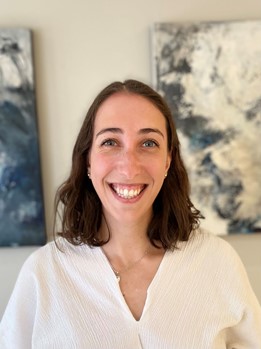
Ary Maharaj
Ary Maharaj is a Registered Psychotherapist (Qualifying) and the Outreach & Education Coordinator at the National Eating Disorder Information Centre (NEDIC). In his community education work, Ary strives to reconcile our commonalities with what makes us unique, acknowledging how each person’s experience intersects with systemic, social factors and can impact our health. His lived experience and clinical work keeps him grounded so that he never forgets the stories of the communities he’s advocating for when trying to take a preventative, proactive approach to help people with their relationship with eating and their body.

Erin Huston (she/her), MA
Erin Huston is a community educator and the Training & Education Coordinator with Body Brave. In her work Erin uses her education and lived experience to engage both professionals and public communities in conversation about eating disorders and diet culture using a feminist and anti-oppressive lens. Erin Huston has a Masters in Social Justice and Community Engagement at Wilfrid Laurier University.

Kaitlyn Axelrod (she/her), MSW, RSW
Kaitlyn Axelrod is a registered social worker and the Program and Outreach Coordinator at Sheena’s Place, where she facilitates support groups and leads community outreach initiatives. Through her work, Kaitlyn aims to destigmatize eating disorders and increase the accessibility of support. Kaitlyn believes that group-based mental health support is critical in reducing suffering and improving individual and community well-being.
